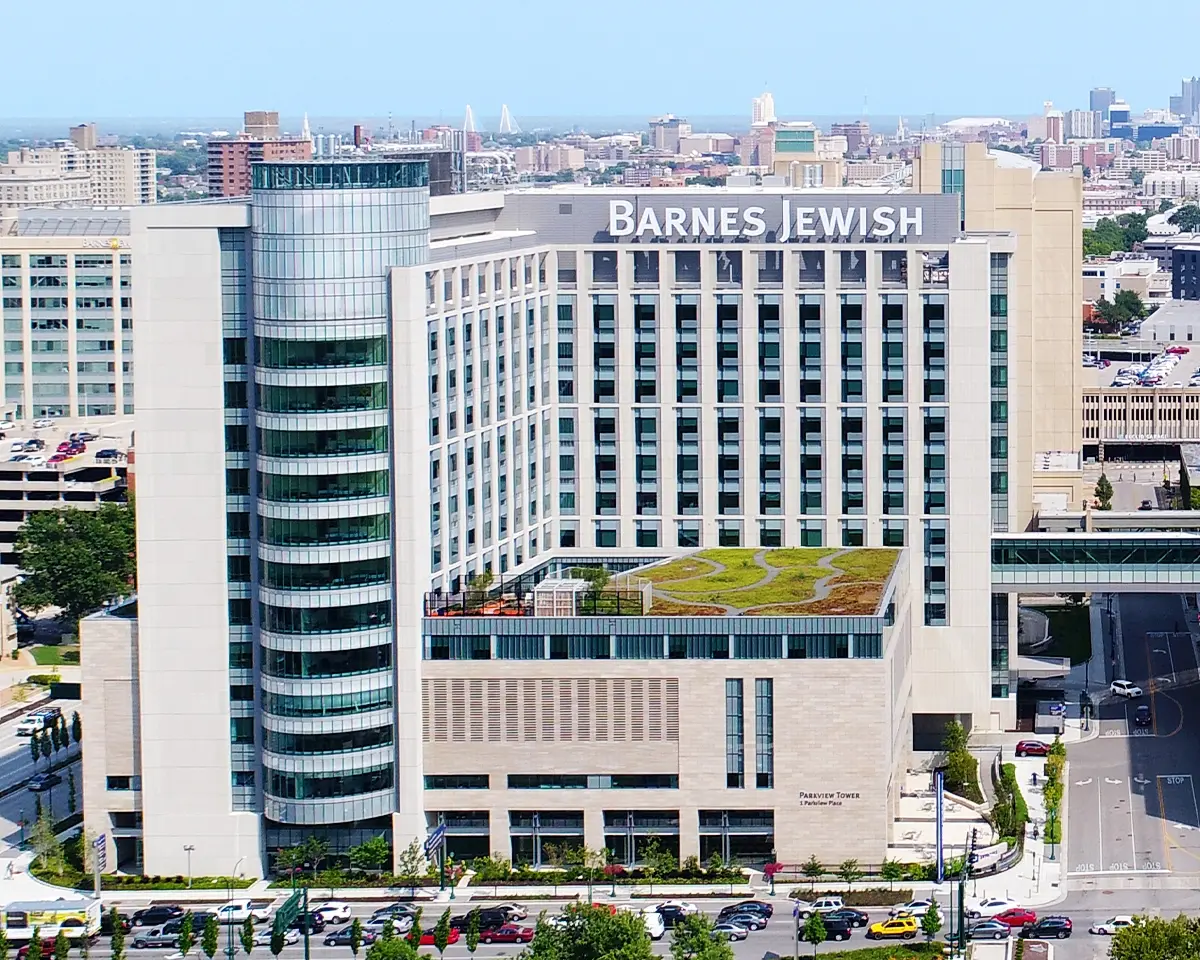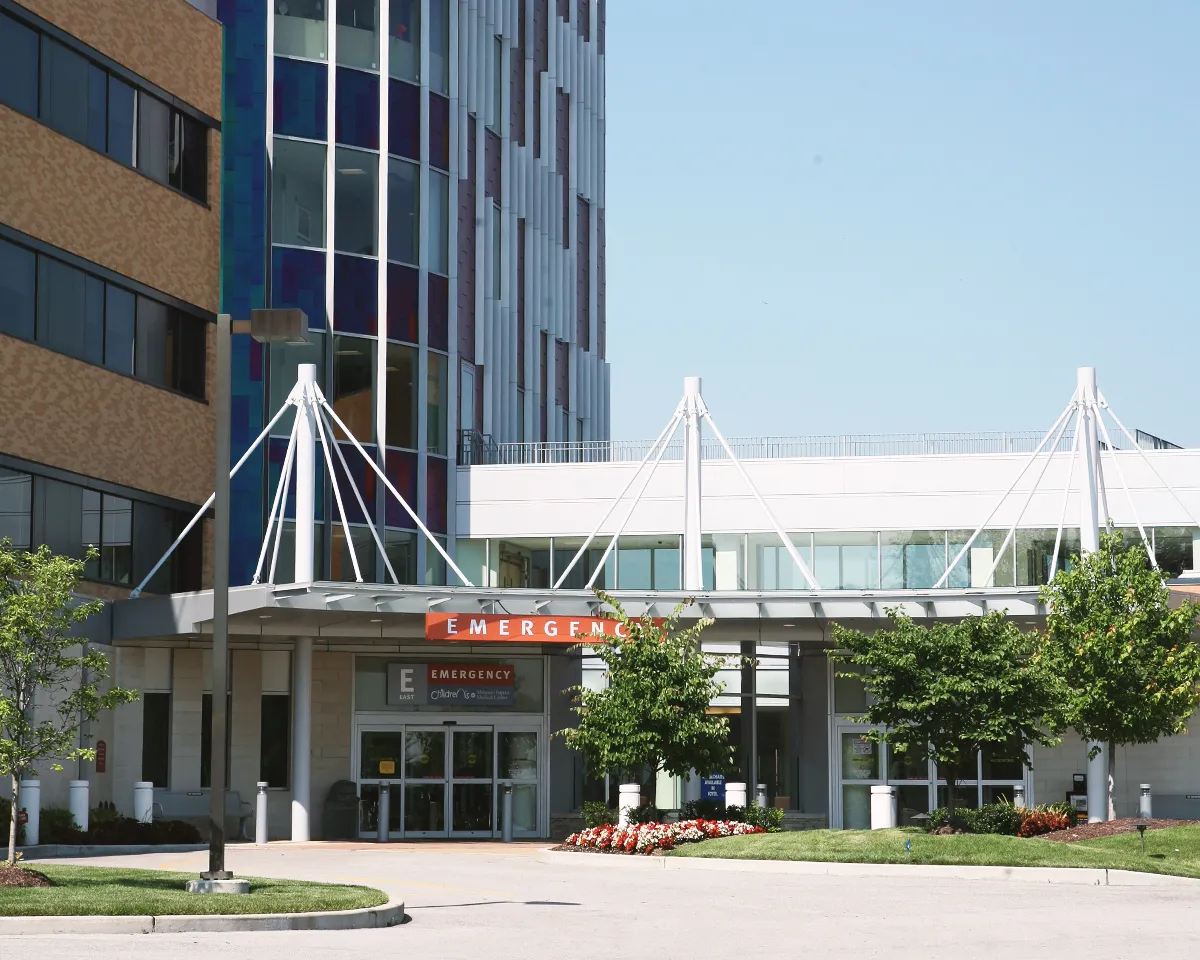Multiple Sclerosis and Neuroimmunology
Our experts have been caring for patients with multiple sclerosis and other neuroimmunological disorders for more than three decades. Our approach combines compassionate treatment, patient education, advanced technology and leading-edge research.
BJC HealthCare works with Washington University physicians, BJC Medical Group, and providers across the region to deliver extraordinary care. Neuroimmunologists treat diseases that affect both the immune system and the nervous system. Evaluating, diagnosing and effectively managing these conditions requires specialized expertise. When you choose one of our specialists you have access to neurologists who specialize in these disorders and can help you manage the condition.
We offer:
Research and clinical trials: Your care is in the hands of physicians who are also expert researchers. We look for new ways to evaluate and treat diseases such as multiple sclerosis. If you’re eligible, you may have access to new treatments through clinical trials.
Timely appointments: We accept referrals from primary care physicians, other neurologists, attending physicians, and patients themselves for treatment and for second opinions. Our center has one of the fastest appointment times in neurology so you get the answers and treatment you need quickly.
Access to specialists: Thanks to our wide-reaching healthcare system, you have access to every subspecialist you may need to manage your care. We work with other neurologists, neurorehabilitation therapists and more to provide you with comprehensive treatment.
Neuroimmunological diseases occur when the immune system attacks part of the nervous system. We treat the full range of these diseases, including:
Multiple sclerosis (MS)
Neuromyelitis optica (NMO)
Optic neuritis (ON)
Transverse myelitis
Central nervous system vasculitis
Cerebral autosomal dominant arteriopathy with subcortical infarcts and leukoencephalopathy (CADASIL)
Multiple sclerosis (MS) is an autoimmune disease that attacks the white matter of the central nervous system (brain, optic nerves and spinal cord). It is a very common disease, striking one in 1,000 people in the US. It can cause a wide variety of symptoms, including tingling, numbness, weakness, vision problems and paralysis. As the disease progresses, symptoms can worsen or expand to other areas of the body.
The past several decades have seen great improvements in MS diagnosis and treatment. Medications can now decrease the number of attacks and slow down their damage. Imaging techniques such as MRIs enable much quicker diagnosis — and earlier treatment — in most patients.
MS cannot be cured, but treatments to improve symptoms can be very valuable. Our multidisciplinary team can help improve your lifestyle so that you can maximize the use of your healthy body functions. We also continue to research exciting new medications that relieve symptoms and improve nervous system functioning in MS patients.
 Barnes-Jewish Hospital
Barnes-Jewish Hospital Barnes-Jewish St. Peters Hospital
Barnes-Jewish St. Peters Hospital Missouri Baptist Medical Center
Missouri Baptist Medical Center
Schedule your appointment
Call (314) 362-9355 or (800) 392-0936 to schedule your appointment with a specialist.